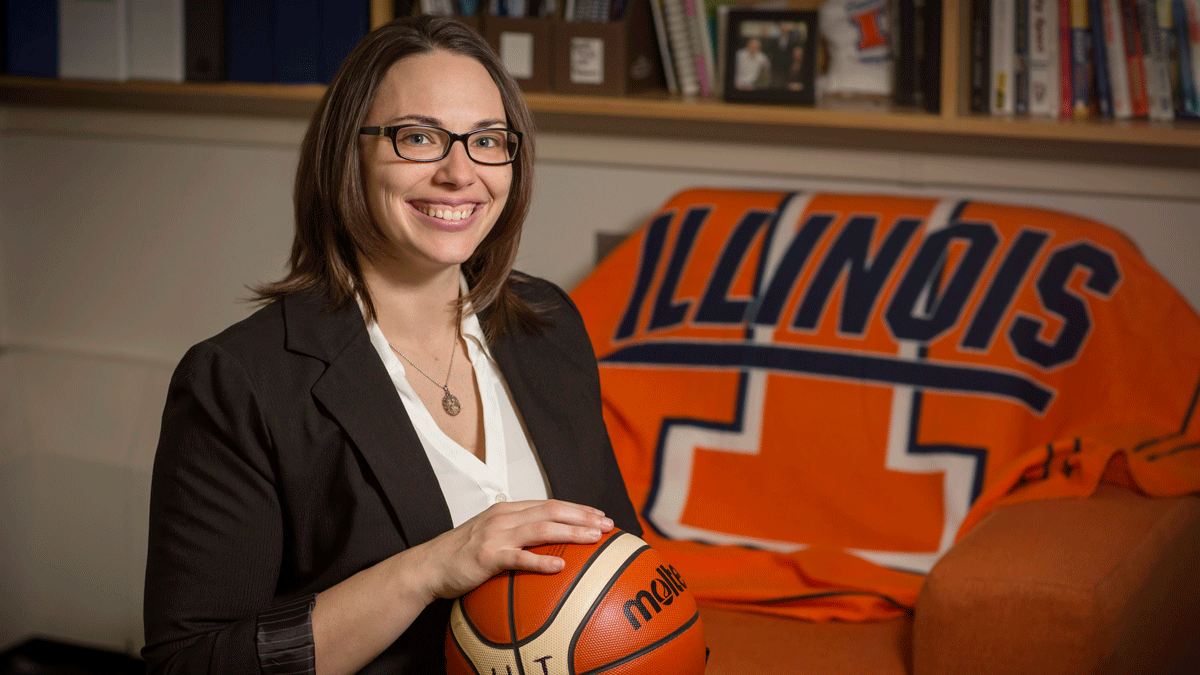Paralympian and Coach Stephanie Wheeler: Sport Moves Society Forward

By: Stephanie Wheeler
I was always a super active kid. When I was six years old, I was injured in a car accident. I didn’t want to have to stop playing the sports I love, but I had no idea what my options were, or that sports for people with disabilities existed.
One day, at a doctors appointment, the parent of a kid who played on a local youth wheelchair basketball team saw me. They asked if I had ever heard of wheelchair basketball and iif I’d like to come out to practice. I was there the very next week, and never looked back.
Since then, I don’t think a day has gone by that basketball hasn’t been a huge part of what I do. Through the years, as a member of three wheelchair basketball national championship teams at the University of Illinois, and a Paralympic gold medalist, basketball has taught me to trust myself and others, to be accountable and reliable, to be courageous in the face of uncertainty, to be disciplined, and to embrace and own the value that myself and other disabled women, bring to our society.
I wish more people understood that wheelchair basketball takes skill, great character, and athleticism. I think that society places such low expectations on individuals with disabilities that when we see wheelchair basketball, we don’t expect the game to be physical and exciting, and we don’t expect the athletes to be athletic, skilled, and intelligent. Sport is sport; for us, the wheelchair is merely a piece of sporting equipment, just like a tennis racquet or soccer cleats.
I feel incredible lucky that in in my college and national team years, I played with some of the best athletes in the world, who were also my closest friends. Everyday at practice, I was inspired by my teammates to be my best, because they were at their best. If I wasn’t, I would let myself and my teammates down. One moment that will stay with me forever was the semifinal game at the 2008 Beijing Paralympic Games against Australia. It had been a back and forth game, with Australia beginning to control the game as we were midway through the 4th quarter. My teammate, who was one of my closest friends, looked at me and said, “Hey! We will not lose this game. We’ve worked too hard for this.” After that, we went on a huge run in the last 5 minutes of the game to secure our win, and our gold medal.
For me, winning a gold medal at the 2004 and 2008 Paraylmpics was the greatest “thank you” that I could ever give to my teammates, coaches, support staff, family, friends, and anyone who supported my journey as an athlete and as a coach. As we were awarded our gold medals and listened to our national anthem played, all I could think about was the basketball hoop in my backyard in North Carolina, all of the big dreams that I had as a kid, and everyone who supported and encouraged those big dreams along the way.
The funny thing is that becoming a gold medalist doesn’t change who you are. The journey to gold is what changes you, and I couldn’t be more grateful for that journey.
I decided to become a coach for several reasons. First, I love wheelchair basketball! I can’t imagine a career outside of the sport that I love. Second, my college coach had an incredibly positive influence on my life. He is actually who asked if I ever thought about wanting to coach, which was a game changer for me. I wouldn’t be who I am today if I would have had any other coach. He taught me I had value, that I was courageous, and that through discipline and hard work, I could have an opportunity to achieve my dreams. It’s now my responsibility to teach the next generation of female wheelchair basketball players those same lessons.
I have deliberately chosen to be out to my team. That was really important to me when I started coaching, because I want to be a visible positive example of a disabled out lesbian coach. Growing up, I felt like I lived most of my life on the margins of what society valued, and so being visible, out, vocal and creating inclusive spaces is how I’m choosing to use the platform of sport as a vehicle for social change. It’s important to me that others who are like me hopefully won’t have to feel they are living their lives on the margins of what society deems valuable and acceptable.
Also, it’s important to me that my student-athletes and everyone in our program know that our team is a safe space, where they are loved, where they are accepted, where they are valued, and where they can be their whole, authentic selves. I believe that if our student-athletes can bring all of who they are to our program, they are going to be at their best on the court, in the classroom and in their personal lives.
Slowly but surely, I can impact not only how society values and treats women with disabilities and all underrepresented identities, but also how the young women that I coach value themselves, despite the societal attitudes, stereotypes, and barriers that exist for them to be fully valued members of our society. Sport helps me to reach more people than I could ever imagine, and I believe that athletes have a responsibility to use their platforms to help move society forward.